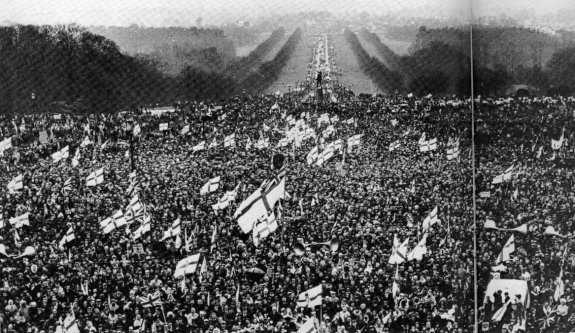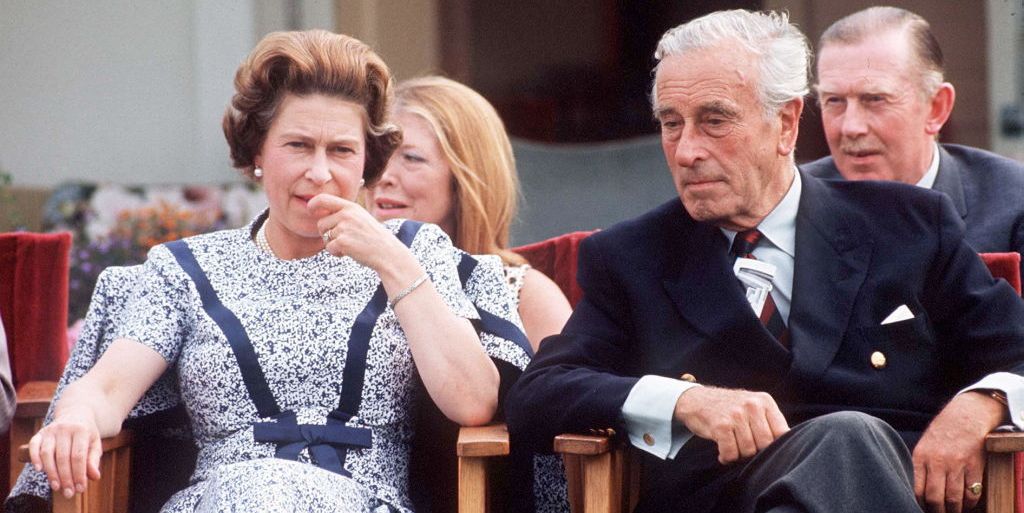"We the People, United"
The Death and Rebirth of British Democracy
~ ~ ~ ~ ~ ~ ~ ~ ~ ~ ~ ~ ~ ~ ~ ~ ~ ~ ~ ~ ~ ~ ~ ~ ~



The Death and Rebirth of British Democracy
~ ~ ~ ~ ~ ~ ~ ~ ~ ~ ~ ~ ~ ~ ~ ~ ~ ~ ~ ~ ~ ~ ~ ~ ~



For many years Harold Wilson had been perceived with deep suspicion within the British establishment over his politics and affiliations, some even going as far to suggest he was an agent of the Soviet Union. There were suggestions that in 1968 a coup against Wilson had been plotted, but his surprise defeat at the 1970 general election removed any immediate threat he may have posed. His return to power in 1974, first by securing a minority government in February and then winning a majority in the second election of the year in October, brought the suspicions back to the fore. The violent Ulster Workers' Council Strike in May 1974, which successfully achieved the abolition of the Sunningdale Agreement and brought an end to devolution in Northern Ireland, was promoted by MI5 in a bid to destabilise Wilson's government. Just a month later on 29 June 1974, the Army occupied Heathrow Airport in a show of strength and an apparent warning shot to Wilson. Worsening economic conditions and an intensified IRA bombing campaign in Great Britain led to renewed whispered talk of 'new leadership' for the country among some establishment figures. The Oxford Street bombing on 19 December 1974 and the discovery that former Labour minister John Stonehouse had faked his death and moved to Australia after working as an agent for Czech military intelligence proved to be decisive factors that sparked the decision to stage a coup to remove Wilson and install a new government. The green light was given and on Saturday 28th December 1974, Wilson was arrested and detained and subsequently dismissed as Prime Minister by Queen Elizabeth II. The maternal uncle of her husband Prince Philip, Lord Mountbatten, was appointed First Lord of the Treasury but not Prime Minister - the first time since 1902 that the two roles were separated.
Mountbatten used a televised address to the country on the evening of 28th December to declare that he intended to form an "Emergency Cabinet" designed to 'retain order, preserve national security, deal with the IRA and improve economic conditions'. The Queen addressed the people on 29th December, just days after her Christmas Broadcast, justifying Wilson's dismissal and urging the population to support the new administration in the tasks that lay ahead of it. As Mountbatten set about forming the Emergency Cabinet it was General Sir Walter Walker, the recently retired former Commander-in-Chief of NATO's Allied Forces Northern Europe unit, who received the call to become Prime Minister. The division of the two roles was clarified by Cabinet, stating that Mountbatten as First Lord of the Treasury would lead the government and provide direction on policy matters, while Walker as Prime Minister would be charged with the technical aspects of implementing policies. In reality, the two men worked closely together on all affairs of state both domestic and foreign. The 47th Parliament of the United Kingdom elected in October 1974 was prorogued by The Queen on the advice of Lord Mountbatten in January 1975, before later being dissolved in February 1976 for an election that was held in March 1976.
The early weeks of the so-called 'Junta' administration, now governing from Whitehall by Order-in-Council, saw many trade union leaders and left-wing politicians with apparent or alleged Soviet links or sympathies detained. Mountbatten and Walker resolved to form a new political organisation - the National Action Committee (later shortened to just National Action) - to stand for political office to secure a parliamentary majority. Walker's 100,000-strong 'Civil Assistance' group helped police and unarmed military personnel to clamp down on unofficial strikes and pockets of protest that emerged across the country, particularly in Labour Party strongholds in Wales, Scotland and Northern England, and fill the temporary gaps in the workforce that strikers created. By mid-1975 the existing trade unions - referred to as a "cancerous Soviet sympathising rot" by Walker - were broken up and replaced by the new National Association of Workers (NAW) to represent employees in the public and private sector and negotiate with businesses and the government. The Mountbatten-Walker administration did not go as far as banning political opponents to the National Action Committee (NAC), with the exception of out and out communist parties and anti-agreement parties in Northern Ireland, but by breaking the unions (thereby dismantling a vital source of income for the Labour Party) and introducing state-controlled vetting of political candidates to prevent those perceived as threats to "national security" from taking office, the other political parties in reality were NAC-approved opponents. By effectively cutting the legs from under their opponents, and with 'Civil Assistance' conducting intimidation campaigns, the general election held on 11th March 1976 resulted in a sweeping landslide for the National Action Committee enabling Mountbatten and Walker to govern through Acts of Parliament.


(There will be ASB-y elements)